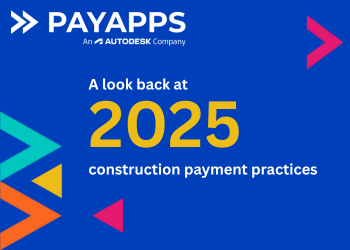
Temperatures rise, relationships get threatened, arguments break out far too often, and a costly outcome for all parties isn’t far away. Whilst this could be describing a typical family holiday abroad, this article focuses on conflicts on construction projects.
Disputes in the sector are far from an inevitable occurrence. But, they aren’t exactly a rarity either – leading to us recently identifying them as one of the common causes for a project delay.
So, what causes them to keep taking place?
Common causes of disputes in the construction industry
The construction industry is a complex and competitive environment. Not many other industries can lay claim to having such a diverse smorgasbord of individuals at its core, with a vast mixture of nationalities, backgrounds, beliefs, and talents working side by side on sites across the UK every day.
As high-pressure environments form on sites and deadlines creep ever closer, tensions will naturally rise. Mistakes along the way can also adversely affect the whole project, driving a wedge between the parties involved. But, when it comes to the construction industry, why does this phenomenon of construction industry disputes continue to occur too often?
A wide range of experts in the sector reference a significant global study: Arcadis’ 11th annual ‘Global Construction Disputes Report 2021: The road to early resolution’. The research – assessing global construction disputes handled in 2020 – included contributions from industry experts, highlighting the key elements driving construction disputes.
What triggers construction disputes and how can I protect my project?
As already touched on, those working in construction often find themselves in high-pressure situations. What this means is that, in short, disputes can arise from almost anywhere. All this is before other factors such as supply chains or unique processes come into the picture.
Failing to anticipate or handle common triggers can give rise to a range of unwanted disputes, as described below.
Contractual issues
Cited as the number one factor in causing disputes, some clients, contractors, or subcontractors were failing to comply, or even understand, their contractual obligations. Proper administration of the contract and adherence to its directives can help avoid disputes or resolve them quickly once they manifest.
Building a process for focusing on client objectives, project constraints, and the contractual framework to address risk from the outset offers a vital step to avoiding disputes.
Failure to keep detailed records
If project participants are looking for trouble, this is the right place. Keeping well-detailed, up-to-date plans and concise records is a critical step in avoiding – or even quickly resolving – disputes.
The importance of clear records and communication was perfectly demonstrated by this high-profile dispute.
Storing documents in an easy-to-access location system means vital evidence can be at the fingertips of the parties involved round-the-clock or ensure everybody is working on the same schedule at the right speed.
If any queries arise over plans, such as misinterpretations or last-minute variations – traditional working methods have the potential to turn a straightforward project into a complex battlefield.
By keeping data in one location, communication benefits and collaboration are encouraged. All parties knowing where to find and upload relevant information can go a long way towards helping to eliminate any uncertainty or ambiguity. Working together with a clear understanding of the job is critical in avoiding and mitigating the inevitable disputes that lay just over the horizon.

Coordination and lack of responsibility
In construction, there are many moving parts, and not all of them necessarily move on time. Costly and time-consuming conflicts arise when there is a misfit in coordinating the schedule of many specialist trades common in a complex project.
“It is not my fault or my responsibility” is sadly too often a common conversational thread between participants in a construction project.
Clearly defining job roles, responsibilities and, as previously mentioned, schedules can go a long way to making the blame game a thing of the past.
Culture considerations
We touched on the diverse nature of the trade earlier, and it isn’t hard to envision how or why mixing cultures and drastically different people can lead to conflicts.
The skills needed to initiate, plan, design, construct, manage and administer the life cycle of a construction project – and steer the individuals responsible for bringing it to life – can be hard to come by.
Being open, honest and transparent in all communications goes a long way to mitigating this.
Rushed tender responses
Starting with the tender specifics, is a challengingly short time allotted for a proper assessment of the tender documents?
Right up front, here is the perfect breeding ground for disputes.
The limitations imposed on elements, such as project planning, methodology, risk assessment, and realistic pricing, can often lead to disputes down the track.
Missing risk assessments
Risk management and a lack thereof can be a pathway for some vicious disputes. Regardless of the size of the project, has a comprehensive risk assessment been conducted before contract sign-off? Without this, construction project players will often be at loggerheads.
So, what can you do when the issues boil over into a full-blown dispute? Here is where adjudication plays a key role, helping to solve a range of problems.

What is adjudication in construction?
Adjudication is a compulsory contractual and statutory means of dispute resolution.
Commonly used in the construction industry, adjudication is when a dispute gets elevated to a third-party adjudicator – selected by the conflicting parties – for determination within a strict time limit. Adjudication is often subject to a strict timetable and may be based purely on documentary submissions or, in some cases, involve a hearing.
Adjudication decisions are binding unless – and until – revised by arbitration or litigation. There is no right of appeal and limited right to resist enforcement. Award of legal costs is at the adjudicator’s discretion unless excluded by the terms of the contract.
The right to review the interim decision is limited, but, the decision does not limit the parties’ rights to have the matter dealt with on a full and final basis by initiating action litigation or arbitration.
Taking the wrong steps when a dispute arises
One of the most common mistakes – and therefore the cause of so many disputes – is the issue of identifying the problems, yet no action gets taken. Often, this is missing the opportunity for prompt, early action at the time of the incident or misunderstanding.
The result? Failing to submit the correct payment notices at the appropriate time can cause a loss of rights via a failure to fulfil obligations, inevitably creating more unnecessary complications with a potential for lost time and incurring expensive costs.
A constant caution is ever-present on the issue of construction industry disputes – ensure you continuously understand and comply with contractual obligations. Doing so reinforces good contract administration and project management. These can be pivotal ways to either avoid disputes in the first place or assist with mitigating their impacts.

Clear communications in the cloud
Increasingly, cloud-based construction software is being relied on to ensure accurate project information is available to all parties involved.
When people are working with will consistent, up-to-date and ever available data, ambiguity is removed reducing the unnecessary tension in the construction process.
Payapps is one such communication platform conceived to provide secure, real-time financial insight into the status of the project.
Developed specifically for the construction industry, it allows everyone to collaborate within a single solution, eliminating the need for endless spreadsheet reconciliations, email trails and phone calls.
By having a ‘single source of truth’ for all payment-related information, Payapps can significantly reduce the change of disputes by providing an evolving audit trail of when and what actions have been taken.
Understand, minimise, and mitigate risk management in construction
Risk and uncertainty go hand-in-hand within the construction industry, but the ever-increasing sophistication of technology can be used to significantly reduce this risk.
We recently explored this in-depth at a webinar conducted and hosted in July 2021. During this, Payapps assembled a panel of highly qualified industry figures to analyse and offer insights on the essential steps to de-risk the construction supply chain – watch the De-Risking Construction webinar recording.




